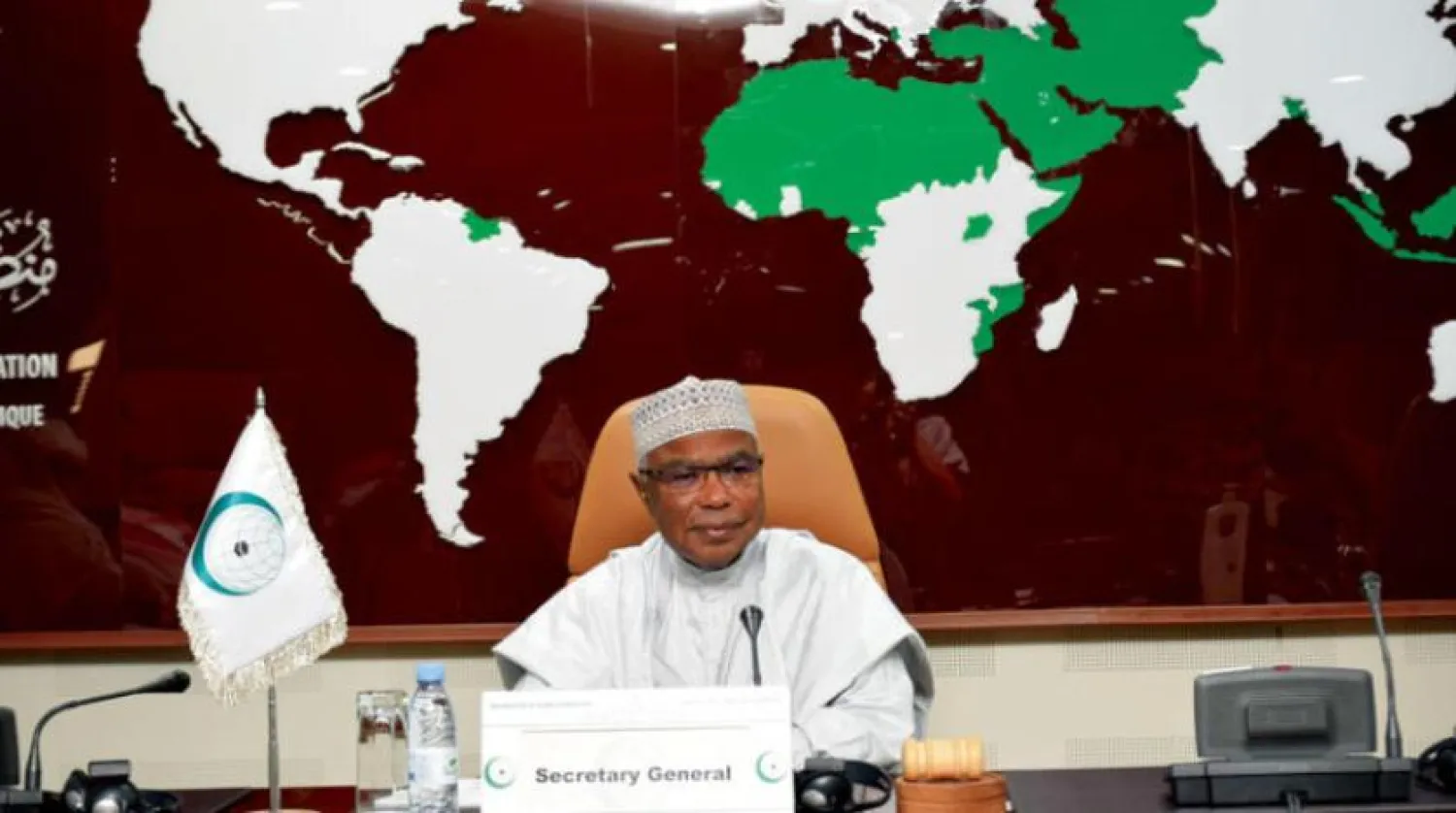The secretary-general of the Organization of Islamic Cooperation (OIC), Hissein Brahim Taha, said that the success of the Hajj seasons every year was “a clear message to all those who question Saudi Arabia’s leading role in serving the Two Holy Mosques and the pilgrims.”
In an interview with Asharq Al-Awsat, Taha noted that the smart systems developed by the Kingdom allow those wishing to perform the Hajj to register directly to obtain the visas, through an electronic draw that promotes fairness in the selection of the pilgrims, in accordance with the quota dedicated to each country.
Pilgrims services
Taha said that Saudi Arabia was deploying all efforts to provide the needs of the pilgrims through harmonious and organizational procedures and a package of smart systems, including the creation of a government e-portal that allows those wishing to perform the Hajj to register directly to obtain the visas. He stressed that the e-draw process has allowed the fair selection of pilgrims based on the quota of each country, emphasizing that the Ministry of Hajj and Umrah was closely coordinating with the relevant bodies to ensure transparency and commitment to the new systems.
The Saudi role
According to the OIC secretary-general, the development of the new systems comes within the framework of the great attention given by the Custodian of the Two Holy Mosques, King Salman bin Abdulaziz, and his Crown Prince, Mohammed bin Salman, to providing the best facilities to the pilgrims, which reflects the honorable image of the Kingdom in the service of the Two Holy Mosques.
Taha added that the comprehensive plans within the Kingdom’s Vision 2030 enhance the great development projects and the level of services provided to pilgrims.
The success of the Hajj season
Saudi Arabia takes into account the diversity of cultures and languages of pilgrims, through a comprehensive approach aimed at facilitating their performance of rituals without obstacles, the OIC secretary-general told Asharq Al-Awsat.
For example, the Saudi authorities are working on printing and distributing prayer books in all languages, as well as some guide books upon the pilgrims’ departure.
Taha also pointed to the creation of the Islamic electronic library, which contains all the Ministry’s written, read and audio versions of Hajj and Umrah books in different languages.
The OIC secretary-general stressed that Saudi Arabia, with all its concerned agencies, was able to work in full swing according to a clear plan of action for the success of the Hajj season, while providing the necessary care to the pilgrims, beginning with facilitating their access to the holy places, and their performance of the various rituals.
The Kingdom has proven its success by providing and developing the best services to the pilgrims year after year, he underlined, pointing that the country has overcome many challenges faced since the start of the Covid-19 pandemic, by implementing many preventive measures that have proven successful and feasible.
Hajj and Islamophobia
Taha noted that Muslims of all nationalities, languages, races and colors flock to the greatest gatherings that embody their faith, unity, and the meanings of brotherhood, tolerance and love. These meanings, as Taha said, are meant to highlight the correct image that refutes misconceptions about Islam and Muslims and accusations of terrorism, as Islam condemns all forms of extremism and terrorism.
The OIC and Palestine
Taha asserted that the OIC realized the importance and necessity of contributing to providing economic and humanitarian support to the Palestinian people, as well as political support for their legitimate rights on the international scene.
In this regard, the organization works to enhance the joint responsibility of member-states towards strengthening the steadfastness of the Palestinian people and alleviating their suffering, which has recently exacerbated as a result of the Israeli occupation policies based on the seizure of tax funds and illegal confiscation of land and natural resources.
He added that the OIC has maintained coordination and cooperation with its affiliated agencies, especially the Islamic Development Bank, in order to expand the economic empowerment program for the Palestinian people, as well as activating the Development Endowment Fund to support Palestinian refugees, which was established based on a decision issued by the 46th session of the organization’s Council of Foreign Ministers.
The OIC General Secretariat also continues to urge member states to increase their contributions to the budget of the United Nations Relief and Works Agency for Palestine Refugees (UNRWA), Taha remarked.
He continued: “The General Secretariat follows up on political and field developments in Palestine and submits periodic reports to member states. It also maintains its contacts and consultations with the official authorities in the State of Palestine in order to coordinate and unify the joint political movements and efforts of the Islamic group in international forums, with the aim of confronting and exposing Israeli violations.”
Meetings with US officials
The OIC secretary-general told Asharq Al-Awsat that he held a session of talks with US Secretary of State Antony Blinken in May, as part of the strategic dialogue with the United States.
This dialogue falls within the framework of cooperation with international partners, including non-members of the Organization of Islamic Cooperation, the United Nations and other international organizations, with the aim to contribute to enhancing the values of understanding, consolidating the foundations of international peace and security, strengthening the position of the Organization and serving its causes.
Taha noted that his talks with Blinken touched on Palestine and Afghanistan, humanitarian, social and cultural issues, in addition to Islamophobia, the status of Muslim communities and minorities in non-member countries, extremism and terrorism, as well as health and climate.
The strategic dialogue provided the opportunity for the delegation of the General Secretariat to reflect the positions of the organization and highlight its stance on issues of common concern, he stressed, adding that the US side has appreciated the important role of the organization on the international scene.














